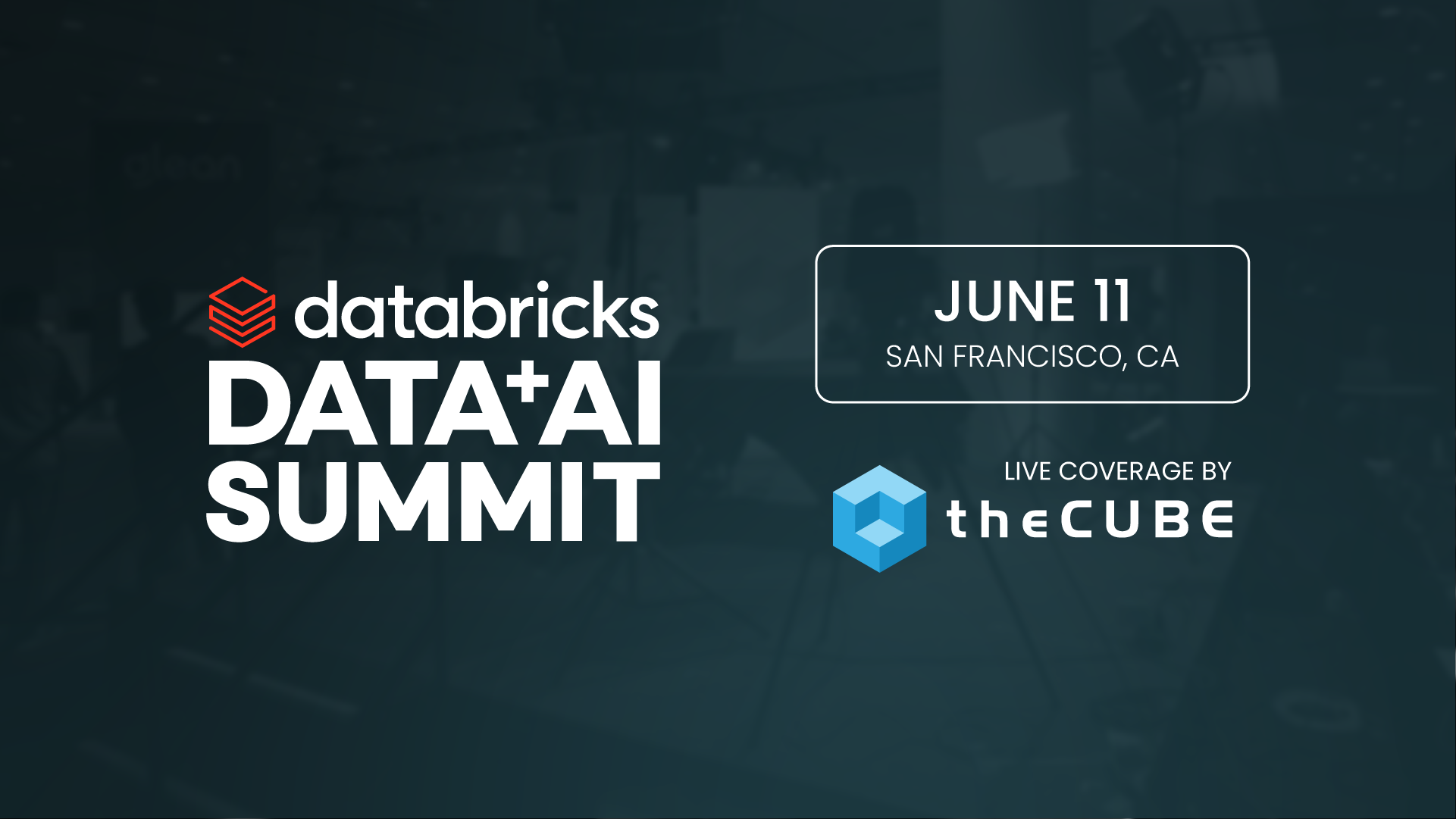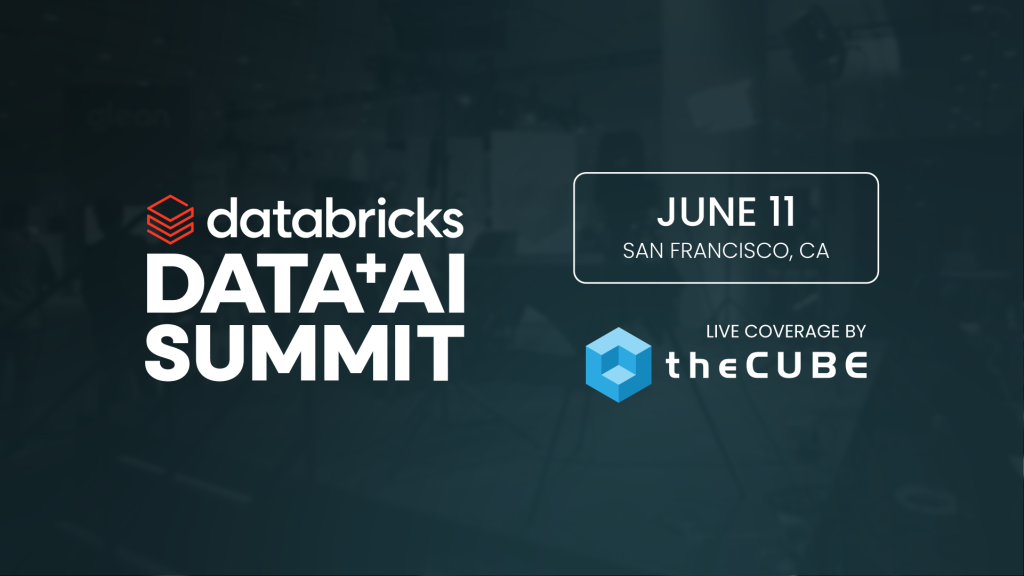
Artificial intelligence is only as powerful as the data behind it — and for today’s enterprises, that means investing in unified data strategies from the ground up.
As AI spreads across departments and decision layers, companies such as Databricks Inc., are realizing that fragmented data can’t support the speed, scale or trust AI demands. Unified data systems are becoming essential to break down silos, enforce governance and enable consistent access across hybrid and multicloud environments. Whether powering generative models or automating support, AI is quickly becoming part of daily business operations — and its success depends on how well data flows between tools, teams and technologies, according to John Furrier, executive analyst at theCUBE Research.
“Databricks already owns the hearts of data engineers and ML developers,” he said. “But the challenge now is whether Unity Catalog can evolve into a true business control plane — and if Mosaic AI can bridge the gap between flexible agent development and enterprise execution.”
Databricks’ Data + AI Summit will explore how unified data architectures, open-source innovation and lakehouse platforms are accelerating enterprise adoption of generative and agentic AI. Furrier will talk with Databricks executives and industry experts about the latest use cases and product announcements tied to the company’s enterprise AI strategy during the event. Join us on June 11 for our coverage of the Databricks’ Data + AI Summit, live on theCUBE, SiliconANGLE Media’s livestreaming studio. (* Disclosure below.)
How unified data platforms are enabling enterprise AI
Unified data platforms, especially those built on lakehouse architectures, are streamlining the path from raw data to intelligent action. With Databricks unifying data engineering, analytics and machine learning, the company is enabling efficient model deployment and strong governance. Enterprises are using these models to boost productivity across RFPs, support, documentation and business functions beyond IT, according to Rob Strechay, managing director and principal analyst for theCUBE Research.
“As organizations try to consolidate their data platforms, such as they did with storage platforms in the past 10 years, they are looking to have compute engines that cover the gambit of data processing use cases,” he said. “It will be very interesting to see how Databricks maps their recent acquisitions into their stance that compute and data should be separate.”
Enterprises are testing large language models, such as those used by Databricks, in sandboxed environments to explore AI-assisted workflows safely, fostering a culture of experimentation that clarifies where human oversight is still needed. At the same time, AI integration into intranet and knowledge systems is transforming information retrieval from static search to dynamic, context-aware assistance.
“LLMs are the beginning and not the end, which Databricks realizes,” Strechay explained. “The acquisitions they have made in Mosaic ML and Tabular show that they are playing a long game about more generalized AI/ML data science environments and to make it easier in a Databricks world to be able to create agentic applications and service the growing number of personas. The real challenge remains the metadata layer, for which we look to see how Unity Catalog gains enhancements to battle Informatica as they become part of Salesforce.”
TheCUBE’s live coverage of the Databricks’ Data + AI Summit will deliver real-time insights into the evolution of unified data platforms, enterprise AI adoption and Databricks’ latest innovations. From analyst perspectives to executive interviews, theCUBE will be on the ground capturing the stories shaping this year’s summit.
TheCUBE event livestream
Don’t miss theCUBE’s coverage of the Databricks’ Data + AI Summit on June 11. Plus, you can watch theCUBE’s event coverage on-demand after the live event.
How to watch theCUBE interviews
We offer you various ways to watch theCUBE’s coverage of the Databricks’ Data + AI Summit, including theCUBE’s dedicated website and YouTube channel. You can also get all the coverage from this year’s events on SiliconANGLE.
TheCUBE Insights podcast
SiliconANGLE also has podcasts available of archived interview sessions, available on iTunes, Stitcher and Spotify, which you can enjoy while on the go.
SiliconANGLE also has analyst deep dives in our Breaking Analysis podcast, available on iTunes, Stitcher and Spotify.
Guests
During the Databricks’ Data + AI Summit, theCUBE analysts will facilitate exclusive interviews and expert insights on the innovations shaping today’s data landscape, including how Databricks and its partners are advancing generative and agentic AI through unified data frameworks, open innovation models and the evolution of lakehouse platforms. Databricks executives to be interviews on theCUBE include:
Omar Khawaja, chief information security officer
Ed Lenta, SVP and GM, APJ
Jonathan Frankle, chief AI scientist
Steve Sobel, global leader, Startup Up and Venture Program
Andrew Ferguson,VP of Databricks Ventures
Stephen Orban, SVP of product ecosystem and partnerships
TheCUBE will also speak with industry experts from SAP, Virgin Atlantic, Fivetran and National Australia Bank.
(* Disclosure: TheCUBE is a paid media partner for the Databricks Data + AI Summit. Neither Databricks, the primary sponsor of theCUBE’s event coverage, nor other sponsors have editorial control over content on theCUBE or SiliconANGLE.)
Photo: SiliconANGLE
Your vote of support is important to us and it helps us keep the content FREE.
One click below supports our mission to provide free, deep, and relevant content.
Join our community on YouTube
Join the community that includes more than 15,000 #CubeAlumni experts, including Amazon.com CEO Andy Jassy, Dell Technologies founder and CEO Michael Dell, Intel CEO Pat Gelsinger, and many more luminaries and experts.
THANK YOU

